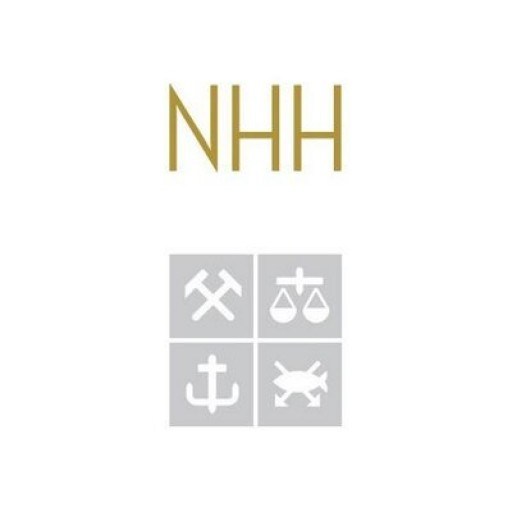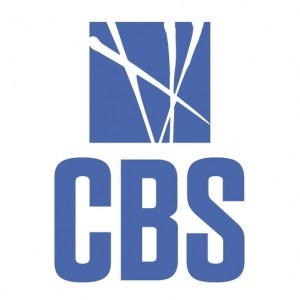Economics at the Norwegian University of Life Sciences (NMBU) offers a comprehensive and engaging curriculum designed to equip students with a solid understanding of economic principles, analytical skills, and real-world applications relevant to today’s global economy. The program emphasizes both theoretical foundations and practical insights, ensuring graduates are well-prepared for careers in various sectors, including finance, consultancy, public policy, and international organizations. Students will explore microeconomics, macroeconomics, environmental economics, and development economics, among other disciplines, fostering a broad and interdisciplinary perspective on economic issues.
Throughout the program, students are encouraged to develop critical thinking and problem-solving abilities, applying quantitative methods and statistical tools to analyze economic data and trends. The curriculum includes courses on economic theory, econometrics, and policy analysis, providing students with the capability to evaluate economic phenomena and inform decision-making processes. In addition, the program highlights sustainable economic development and the role of economics in addressing global challenges such as climate change, resource management, and social equity.
The program at NMBU is delivered through a combination of lectures, seminars, case studies, and project work, fostering an interactive learning environment. Students benefit from close contact with faculty members who are active researchers and practitioners in their fields. Practical experiences, internships, and collaborative projects with industry partners are integral parts of the program, offering valuable insights into the functioning of real-world economies.
Graduates of the Economics program will acquire essential skills in economic analysis, policy formulation, and strategic planning, enabling them to contribute effectively to both private and public sector organizations. The program also prepares students for further studies or research in economics and related disciplines, opening pathways to academic or professional advancement. With a strong emphasis on sustainability and responsible resource use, the program at NMBU aims to produce economists who are not only skilled analysts but also conscientious contributors to societal development and environmental stewardship.
The Bachelor's degree in Economics at the Norwegian University of Life Sciences (NMBU) offers students a comprehensive foundation in economic theory and its practical applications. The program is designed to equip students with the analytical skills and knowledge necessary to understand complex economic systems and contribute to sustainable development and informed decision-making in various sectors. Throughout the three-year programme, students explore core areas such as microeconomics, macroeconomics, quantitative methods, economic policy, and sustainable resource management. The curriculum emphasizes the importance of environmental considerations, social responsibility, and economic efficiency, preparing graduates to address contemporary global challenges.
In the first year, students are introduced to fundamental economic concepts, statistical techniques, and data analysis skills, establishing a solid base for more advanced studies. The second year deepens understanding of economic theories, including market dynamics, fiscal and monetary policies, and the role of government intervention. Students also undertake courses in environmental economics and natural resource management, reflecting NMBU’s commitment to integrating ecological sustainability into economic analysis. During the final year, students have opportunities for specialization through elective courses and a thesis project, enabling them to develop expertise in specific areas such as agricultural economics, development economics, or environmental policy.
The programme also emphasizes practical skills through case studies, project work, and internships, fostering real-world experience. Collaboration with industry partners and involvement in research initiatives ensure that students are engaged with current economic challenges and innovations. Graduates of the programme are well-prepared for employment in public administration, private industry, research institutions, and NGOs, particularly in roles related to policy analysis, consultancy, and sustainable business development. Upon completion, students receive a Bachelor’s degree in Economics, providing a strong platform for pursuing further studies or entering the workforce with a solid understanding of economic principles and their importance in fostering sustainable development and economic resilience.
The financing of the Bachelor's degree program in Economics at the Norwegian University of Life Sciences (NMBU) is primarily structured through a combination of government funding, student tuition fees, and additional financial support opportunities. As a public university in Norway, NMBU benefits from the Norwegian government’s commitment to free education for domestic students, which means that tuition fees are generally not charged to Norwegian and EU/EEA students. This policy significantly reduces the financial barrier for students pursuing economics studies and allows for greater access to higher education.
For international students outside the EU/EEA, tuition fees may apply, and these are set annually based on university guidelines and market considerations. The exact tuition fee for international students varies and is published on the university’s official website. Besides tuition, students are responsible for living expenses, which include accommodation, food, study materials, and personal expenses. The costs of living in Norway are relatively high, and students are encouraged to plan their finances accordingly.
Financial aid options include governmental student loans and grants administered through the Norwegian State Educational Loan Fund (Lånekassen). Norwegian and EEA students are generally eligible for these loans, which cover tuition fees (if applicable) and contribute towards living costs. International students from countries outside the EEA often need to secure alternative funding sources, such as private scholarships or sponsorships, as they may not qualify for Lånekassen support.
NMBU also offers various scholarships and grants based on academic merit, financial need, or specific criteria such as regional origin or specialized interests within economics. Applicants are advised to check the university's scholarship portal and external scholarship opportunities early in their application process. Additionally, students may seek part-time employment opportunities within the university or in the surrounding region to supplement their income.
The university’s financing structure emphasizes accessibility and support for domestic students, aligning with the national policy to promote higher education. The combination of government support, available loans and grants, and scholarship opportunities aims to ensure that students from diverse backgrounds can pursue their economics studies at NMBU without excessive financial burden. Overall, the program’s financing system relies heavily on public funding mechanisms, with supplementary options available to enhance affordability and support student success.
The Economics program at the Norwegian University of Life Sciences (NMBU) offers students a comprehensive education in economic theory, applied economics, and related disciplines. The program aims to equip students with the analytical skills necessary to understand and address complex economic issues in both national and international contexts. Students will study a range of subjects including microeconomics, macroeconomics, environmental economics, development economics, and financial economics. The curriculum emphasizes not only theoretical understanding but also practical application through case studies, project work, and internships, fostering critical thinking and problem-solving abilities. The program also integrates sustainability and environmental considerations, aligning with NMBU’s overall focus on sustainable development and responsible management of resources. Students have opportunities to participate in research projects and collaborate with industry partners, gaining real-world experience. The degree prepares graduates for careers in government, private sector, research institutions, and international organizations, where economic analysis and policy-making are vital. The program typically spans three years for a Bachelor’s degree, with options for further specialization or advanced study at the Master’s level. NMBU’s focus on interdisciplinary learning enables students to develop a broad perspective and innovative approaches to economic challenges. Students benefit from access to experienced faculty members, modern facilities, and a vibrant academic community. The program also offers opportunities for exchange studies and international mobility, enriching students' academic and cultural experiences. Overall, NMBU’s Economics program combines rigorous academic training with practical relevance, preparing graduates to contribute effectively to sustainable economic development and policy formulation worldwide.










